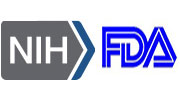
FRIDAY, Sept. 20 (HealthDay News) — A new program creating 14 first-of-a-kind research centers for tobacco regulation in the United States was announced by the federal government on Thursday.
The U.S. Food and Drug Administration and the U.S. National Institutes of Health awarded a total of up to $53 million to the 14 centers for the first year, with a potential sum of more than $273 million over the next five years.
Despite decades of work to reduce tobacco use, smoking continues to be the leading cause of preventable death and disease in the United States. The new Tobacco Centers of Regulatory Science will conduct research to help in the development and evaluation of tobacco product regulations meant to protect public health.
Researchers will focus on seven specific areas: diversity of tobacco products, reducing addiction, reducing toxicity and carcinogenicity, harmful health consequences, communications, marketing of tobacco products, and economics and policies.
The program will be coordinated by the NIH’s Office of Disease Prevention and administered by three NIH institutes: the National Cancer Institute, the National Institute on Drug Abuse, and the National Heart, Lung, and Blood Institute.
The program will “bring science-based regulation to the manufacturing, marketing and distribution of tobacco products,” FDA commissioner Dr. Margaret Hamburg said in an FDA news release.
The agency is also establishing science and research programs designed to increase understanding of the risks associated with tobacco use.
“While we’ve made tremendous strides in reducing the use of tobacco products in the U.S., smoking still accounts for one in five deaths each year, which is far too many,” NIH director Dr. Francis Collins said in the news release.
More information
The U.S. National Library of Medicine outlines the risks of tobacco.
Copyright © 2026 HealthDay. All rights reserved.

